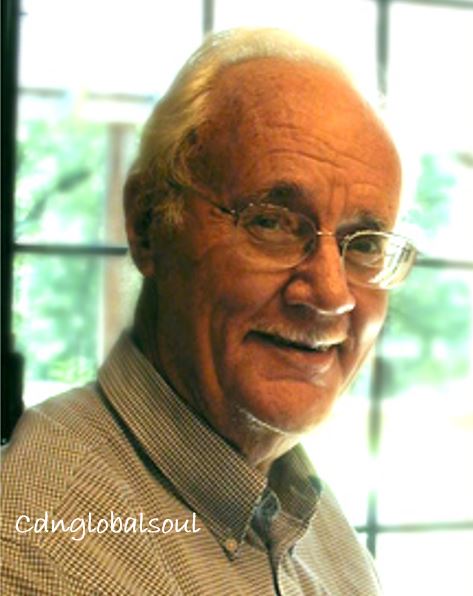Organizations

Organizations do NOT create life; they only sustain life. Organizations are skeletons, not organs. No matter how much people are paid, they will always gravitate to structures that sustain the kind of life that
resonates with them. Often good people leave when leaders do not understand this reality. Get the right people on board, care for them and the mission of the organization will “generally” care for itself. An organization is only a good as the quality of the people it nurtures. Work hard at making people … [ for the rest of the story, subscribe to cdnglobalsoul’s Heart in Hand.]
Character and Competence
Character and Competence. The Psalmist reminds us that David cared for the God’s people “with a true heart [character] and led them with skilful hands [competence]” (Ps.78:72). Depending on your leadership structure, some organizations reward character over competence or vice versa.

It really is both. A good threefold guideline for ensuring the presence of both, is to search for individuals who can first, manage themselves; second, work with others; and then third, express a degree of competence. Good leaders will ensure that items one and two are clearly evident since the third should be self-evident from the trajectory of a person’s CV. The focus then should be on … (For the rest of the story, subscribe to “Heart in Hand”… from the pen of the cdnglobalsoul)
BOOK OF THE WEEK: David Ramey. Empowering Leaders. (Cambridge: Sheed and Ward, 1991). Stands the test of time.
On “Being All There”
Jim Elliott wrote and my parents normalized it in our home that … “wherever you are, be all there. Live to the hilt every situation you believe to be the will of God.” Be all there became a “family mantra” that was instrumental in our families ability to make our MIFG (Maximum Impact for God) in so many of the places we lived in (eight countries and 30 houses).
One doesn’t have to read very far in the New Testament to recognize that this “be all there” idea was at the heart of Jesus’ life and ministry. After all, he had become flesh and “dwelt among us” (John 1:14). The apostle Paul had the same idea. Speaking of his situation, Paul writes that he learned … “that in whatever state I am to be content” (Phi. 4:12 … i.e. to have abundance or to have need).
Reflecting on Paul’s life, Rolland Allan observed that the longest he spent in any one place was three years. It seems that he had discovered that if he was to have an effective, authentic ministry in each location he was going to have to be “all there” for however long that would be. He entered into life as fully as possible in every situation, circumstance and observed how God used him!
This phrase is particularly poignant for those of us that are “global souls” …people who have grown up in the spaces between and … (For the rest of the story, subscribe to the Heart in Hand)
Banyan or Banana Tree
It’s easier to train followers than to develop leaders! In conversations about leadership Paul G. Hiebert would often make this observation: Remember CeCe, “nothing grows under a Banyan tree!” He would go on to describe this large tree from his childhood in India with its dense foliage that would spread its branches out over an area of up to an acre and every so often drop air roots down into the ground ensuring that nothing would grow under it. When it dies, the land below lies scorched and barren having consumed the nutrients for itself.

Compare that with a banana tree, Paul would say. Every six months a pile of new sprouts develop, grow up in and around the circumference of the original tree. By eighteen months, it produces fruit that nourishes and then dies. However, by the time a banana tree dies it will have set in motion a process whereby every six months multiple shoots will continue the unbroken cycle of emerging and growing. (For the rest of the story, subscribe to the “Heart in Hand”.)
A Leader and their Friends
“It’s lonely at the top,” or so they say…but it doesn’t need to be. Beware of the leader that does not have any close friends. Nurture deep, meaningful relationships with others. The wise leader will develop an accountability structure with faithful friends (Prov. 27:6) and allow them to speak into their lives. In areas of doctrinal, financial, and moral values … be answerable to others! Give a group of faithful friends the right to correct and rebuke you. Always be cautious around those who like to tell you that they are only “accountable to God.” God generally works through other people! Inviting others into your life enables you to be open and transparent as you seek to work with others! Incidentally, that is why it is always difficult to envision a loner as a leader! (For the rest of the story, subscribe to the “Heart in Hand”.)
A Life Worth Living
Several memorial services got me reflecting about what constitutes a well lived life! These services reminded me of the first funeral I attended one June day many decades ago in La Paz, Bolivia … the “heavenward graduation” of my good friend Dennis Farah.

Dennis was a faithful friend from my twenties, a peer who sought to live his life wholeheartedly for God. I was privileged to know Dennis for an awfully short time! We enjoyed doing many things together…late night chats along with CS Kelly dreaming about how we might make an impact on Bolivia and thinking about new ways to build into people in order to bring them together for kingdom purposes. Then of course, there were the numerous motorcycle rides through the Andes Mountains.
You would have liked my friend Dennis! Our brief encounter in my 20 shaped a number of values that have found expression over the years in my life. My interaction with Dennis during my formative years set the stage for being intentional about creating a life worth living. (For the rest of the story; subscribe to “Heart in Hand.”)
Power of the Pen
I believe in the power of the pen—literally. That is, I believe that we process life better and differently when we synthesize “the stuff” we are reading or hearing by capturing it in real time with a pen. Computers and phones have become the go-to note-taking method for many. But I have discovered that our brains benefits from an old-fashioned pen and paper. Taking notes by hand–using the cognitive process to manipulate and transform information through summarizing, organizing and paraphrasing–leads to deeper understanding.
So in recent years I have shifted back to what some might call an ancient practice—an approach employed by learners in the not-so-distant past—of “taking thoughts captive” with a pen or a pencil.

You are no doubt acquainted with these little instruments (both low and high tech). Perhaps you haul one these around with you. My pens has the amazing ability to capture insights in thousands of languages. Lighter, easily accessible, and more compact than a laptop, these tiny instruments have a remarkable capacity to console-date ideas and sort through the gibberish to succinctly capture the essence of what a person was saying amid the flurry of words. (For the rest of the story, subscribe to the cdnglobalsoul Heart in Hand.)